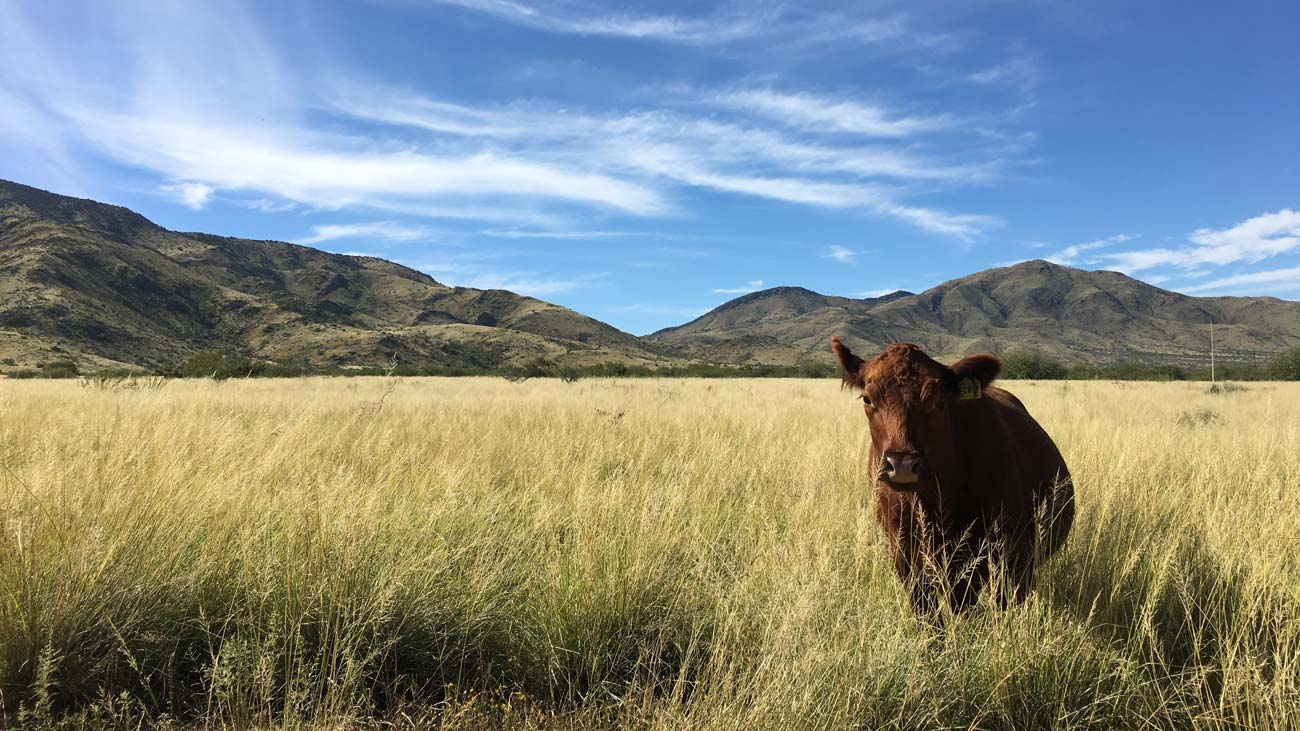From Ranch to Table: Nutrition Students Experience the Journey of Beef
Tiffany Selchow | May 7, 2025
University of Arizona nutrition students braved a snowy day at Santa Rita Ranch for an unforgettable Gate to Plate experience.
Changing Perceptions Through Experience
Pre and post-tour surveys revealed significant shifts in students' perceptions about beef production and its nutritional value. Before the tour, many participants expressed concerns about environmental impact, animal welfare, and the nutritional profile of beef. However, the educational experience dramatically transformed these views. "I was surprised to learn how much their demeanor and disposition matters in cattle raising," noted one participant in the post-tour survey. Another remarked on how "the ranchers truly care about the cattle and the cattle's relationship with humans." The survey results showed particularly notable changes in several key areas:
Improved Understanding of Sustainable Practices
Prior to the tour, several participants gave average to below-average grades when asked about ranchers' efforts to reduce greenhouse gas emissions and protect biodiversity. Post-tour responses showed a marked improvement, with most students agreeing or completely agreeing that cattle farmers are good environmental stewards who protect land, water, and other natural resources.
Greater Appreciation for Animal Welfare
One of the most significant shifts occurred in perceptions of animal care. Before the event, participants had mixed views about how cattle are treated. After witnessing the McGibbons' approach to ranching, one student highlighted "how cattle are treated well and cared for." Enhanced Understanding of Beef's Nutritional Value The nutritional component of the tour led by Emma Mortensen, RD, clearly made an impact. Before the tour, many respondents indicated they would recommend beef less often than other proteins. After learning about beef's nutritional profile, several participants indicated they would now recommend beef "as often as" or even "more often than" other protein sources like chicken, fish, or plant-based options. One participant specifically mentioned they would remember that "beef is a good source of many nutrients not just protein," while another stated they learned that "65% of all meat cuts are lean."
A Complete Educational Experience
The Gate to Plate tour connected the dots between sustainable production practices and nutritional benefits, giving these future nutrition professionals a comprehensive understanding of beef's journey from ranch to table. "I will share that the experience was very informative, well presented, and eye opening," commented one participant. Another planned to share "how beef can be a part of a healthy diet" and "how cattle can be raised" sustainably. This annual program funded by the Iowa Beef Industry Council and executed by the Arizona Beef Council continues to bridge the gap between beef producers and nutrition professionals, fostering informed conversations about beef production and consumption. By experiencing firsthand how modern ranching prioritizes sustainability, animal welfare, and quality, these nutrition students are better equipped to make and share evidence-based recommendations about including beef
###
About the Arizona Beef Council
The Arizona Beef Council is a non-profit organization served by a nine-member board of directors representing cattle growers, cattle feeders, and dairy farmers, and are appointed by the Governor of Arizona. These volunteers oversee the Beef Checkoff and Checkoff-funded programs.
About the Iowa Beef Industry Council
The Iowa Beef Industry Council is funded by the $1-per-head national Beef Checkoff Program and the $0.50-per-head Iowa State Beef Checkoff. Checkoff dollars are invested in beef promotion, consumer information, research, industry information and foreign market development, all with the purpose of strengthening beef demand. For more information, visit iabeef.org.
About the Beef Checkoff Program
The Beef Checkoff Program was established as part of the 1985 Farm Bill. The checkoff assesses $1 per head on the sale of live domestic and imported cattle, in addition to a comparable assessment on imported beef and beef products. States may retain up to 50 cents on the dollar and forward the other 50 cents per head to the Cattlemen’s Beef Promotion and Research Board, which administers the national checkoff program, subject to USDA Approval. For more information, visit BeefBoard.org.
